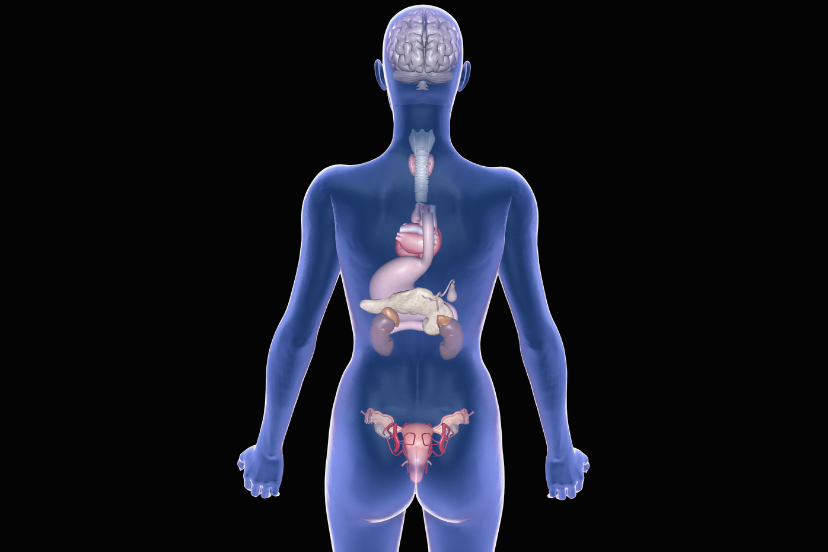Endocrine Disorders and Bone Health: Unlocking The Connection
Hey there, bone health enthusiasts! Are you ready to dive deep into the captivating world of “Endocrine Disorders and Bone Health”? Brace yourself as we unravel the secrets behind the fascinating interplay between our endocrine system and the strength of our skeletal structure. From hormonal havoc to the nitty-gritty of bone health, this article is your compass to navigate this intricate relationship. Let’s get started!
Endocrine Disorders and Bone Health
Buckle up, as we journey through the heart of our topic – the synergy between Endocrine Disorders and Bone Health. Picture this: your endocrine system, the orchestra conductor of hormones, plays a profound role in maintaining bone strength. Hormones like estrogen, testosterone, and parathyroid hormone are the main characters in this bone-health saga, influencing bone density, remodeling, and overall health.
But what happens when the endocrine system falters? It’s like a misplaced note in a symphony. Endocrine disorders such as hypothyroidism, hyperthyroidism, and diabetes can throw this symphony off balance, impacting bone health. For instance, elevated cortisol levels in Cushing’s syndrome can lead to bone loss, while an underactive thyroid can reduce bone formation. It’s a complex tango, where hormonal missteps can leave your bones vulnerable.
The Dance of Hormones and Bones: A Synchronized Rhythm
Ah, the marvel of hormones – those tiny messengers that orchestrate our bodily functions. In the realm of bone health, these hormones are the conductors of bone formation, maintenance, and repair. Let’s spotlight three key hormones that waltz through this intricate dance:
- Estrogen: Ladies, this one’s for you! Estrogen not only regulates your reproductive cycle but also plays a pivotal role in maintaining bone density. Reduced estrogen levels, often seen in conditions like menopause, can lead to decreased bone density and an increased risk of fractures.
- Testosterone: Gentlemen, don’t feel left out. Testosterone isn’t just about muscles; it’s a bone protector too. This hormone supports bone density and growth, and its decline can result in bone loss.
- Parathyroid Hormone (PTH): This hormone, produced by the parathyroid glands, is the gatekeeper of calcium in our bodies. PTH ensures that our blood calcium levels remain stable. However, prolonged high levels of PTH, as seen in hyperparathyroidism, can weaken bones over time.
FAQs About Endocrine Disorders and Bone Health
Q1: Can endocrine disorders really affect my bone health?
Absolutely! Hormones have a profound impact on bone density and maintenance. Disorders like hyperthyroidism, where the thyroid is overactive, can accelerate bone turnover and lead to bone loss.
Q2: Are all endocrine-related bone issues irreversible?
Not necessarily. With proper medical management and lifestyle changes, bone health can often be improved. Consult an endocrinologist and follow their recommendations for the best outcomes.
Q3: How does diabetes influence bone health?
Diabetes can affect bone health through various mechanisms, including impaired blood flow to bones and altered bone turnover. Keeping blood sugar levels in check is crucial for minimizing these effects.
Q4: Can hormone replacement therapy (HRT) help protect bones?
Yes, for many individuals, HRT can be beneficial in maintaining bone density, especially for postmenopausal women. However, it’s essential to discuss the risks and benefits with a healthcare provider.
Q5: Are there lifestyle changes that can support bone health amidst endocrine disorders?
Absolutely! Regular weight-bearing exercises, a balanced diet rich in calcium and vitamin D, and avoiding smoking and excessive alcohol consumption can all contribute to stronger bones.
Q6: What role does nutrition play in bone health during endocrine disorders?
Nutrition is a cornerstone of bone health. Adequate calcium and vitamin D intake are crucial. In some cases, dietary supplements might be recommended, but consult a healthcare professional before making any changes.
Navigating the Seas of Change: Tips for Bone Health
- Stay Active: Engage in weight-bearing exercises like walking, dancing, or jogging to stimulate bone growth and counteract bone loss.
- Diet Matters: Load up on calcium-rich foods like dairy, leafy greens, and fortified products. Vitamin D partners with calcium to maintain bone health, so bask in some sunlight too!
- Kick Unhealthy Habits: Smoking and excessive alcohol consumption can weaken bones. Cutting back on these habits will not only benefit your bones but your overall well-being.
- Consult the Experts: If you’re dealing with an endocrine disorder, collaborate with both an endocrinologist and a bone health specialist. Their combined expertise will guide your journey.
- Medication Management: If medications are part of your treatment plan, follow your doctor’s instructions diligently. Some medications can impact bone health, so a balanced approach is key.
Conclusion
Voilà! You’ve traversed the intricate maze of “Endocrine Disorders and Bone Health”. Remember, your endocrine system and bones engage in a dance that shapes your overall well-being. Whether it’s hormonal fluctuations or bone density concerns, knowledge is your armor. Stay proactive, consult experts, and embrace healthy lifestyle choices to keep your bones strong and resilient. As you waltz through life, let your bones groove to the rhythm of good health, supported by a harmonious endocrine symphony.




